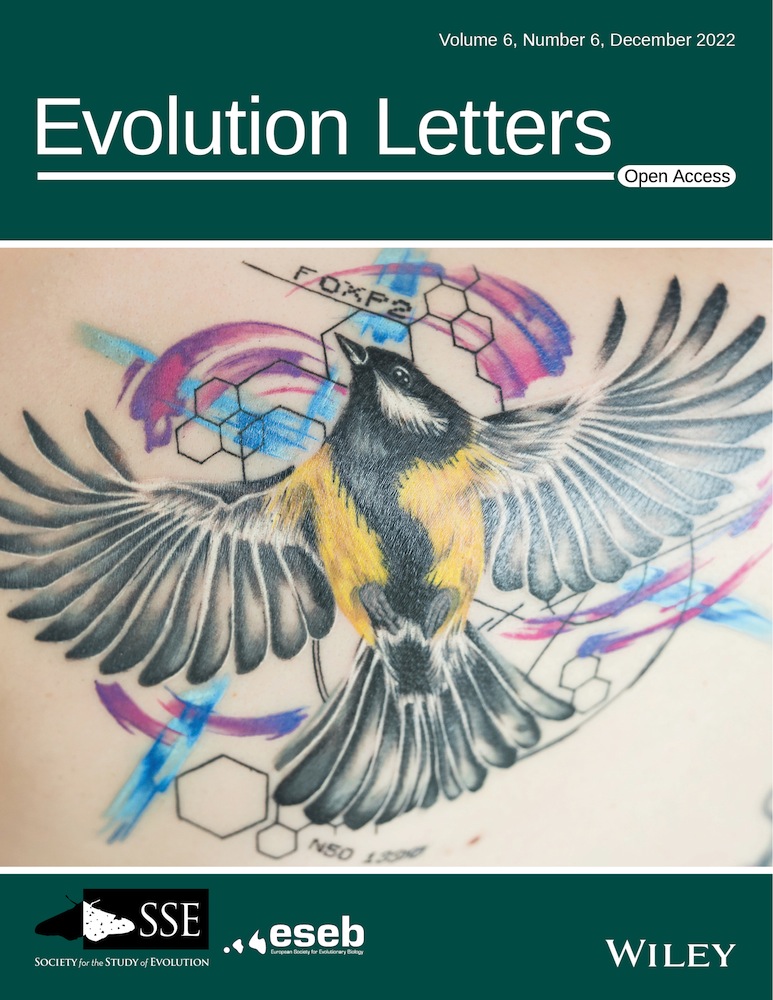我们何时以及如何预测对气候变化的适应性反应?
IF 3.7
1区 生物学
Q2 EVOLUTIONARY BIOLOGY
引用次数: 0
摘要
预测种群能否、何时以及如何适应气候变化是当今科学界面临的最大挑战之一。在此,我们以气候变化进化适应特刊的投稿、作者调查和最新文献为基础,探讨预测气候变化适应反应的局限和机遇。我们概述了现在、未来以及即使我们尽了最大努力也可能永远无法预测的情况。对于基因型与表型之间的映射关系清楚明了的性状,以及因气候变化而经历强烈、直接选择的性状,预计预测会更加准确。一项荟萃分析显示,在未来气候条件下进行的研究中,性状遗传性和进化性总体适中,但表明当前气候条件与未来气候条件之间没有显著变化,这表明适应未来气候的遗传变异既没有增加也没有减少。预测种群的持久性和进化拯救仍然是不确定的,特别是对于许多没有足够生态数据的物种。不过,本特刊的作者在接受调查时,对我们预测未来进化对气候变化的反应的能力还是比较乐观的。随着我们进一步努力了解各种生物、它们的生态学及其适应潜力,预测结果将会有所改善。功能基因组资源的进步,特别是向非模式物种的扩展,以及进化实验与 "omics "的结合,也会提高预测能力。尽管预测进化对气候变化的反应仍然具有挑战性,但即使是微小的进步也将减少未来进化对气候变化反应的巨大不确定性。本文章由计算机程序翻译,如有差异,请以英文原文为准。
When and how can we predict adaptive responses to climate change?
Predicting if, when, and how populations can adapt to climate change constitutes one of the greatest challenges in science today. Here, we build from contributions to the special issue on evolutionary adaptation to climate change, a survey of its authors, and recent literature to explore the limits and opportunities for predicting adaptive responses to climate change. We outline what might be predictable now, in the future, and perhaps never even with our best efforts. More accurate predictions are expected for traits characterized by a well-understood mapping between genotypes and phenotypes and traits experiencing strong, direct selection due to climate change. A meta-analysis revealed an overall moderate trait heritability and evolvability in studies performed under future climate conditions but indicated no significant change between current and future climate conditions, suggesting neither more nor less genetic variation for adapting to future climates. Predicting population persistence and evolutionary rescue remains uncertain, especially for the many species without sufficient ecological data. Still, when polled, authors contributing to this special issue were relatively optimistic about our ability to predict future evolutionary responses to climate change. Predictions will improve as we expand efforts to understand diverse organisms, their ecology, and their adaptive potential. Advancements in functional genomic resources, especially their extension to non-model species and the union of evolutionary experiments and “omics,” should also enhance predictions. Although predicting evolutionary responses to climate change remains challenging, even small advances will reduce the substantial uncertainties surrounding future evolutionary responses to climate change.
求助全文
通过发布文献求助,成功后即可免费获取论文全文。
去求助
来源期刊

Evolution Letters
EVOLUTIONARY BIOLOGY-
CiteScore
13.00
自引率
2.00%
发文量
35
审稿时长
10 weeks
期刊介绍:
Evolution Letters publishes cutting-edge new research in all areas of Evolutionary Biology.
Available exclusively online, and entirely open access, Evolution Letters consists of Letters - original pieces of research which form the bulk of papers - and Comments and Opinion - a forum for highlighting timely new research ideas for the evolutionary community.
 求助内容:
求助内容: 应助结果提醒方式:
应助结果提醒方式:


